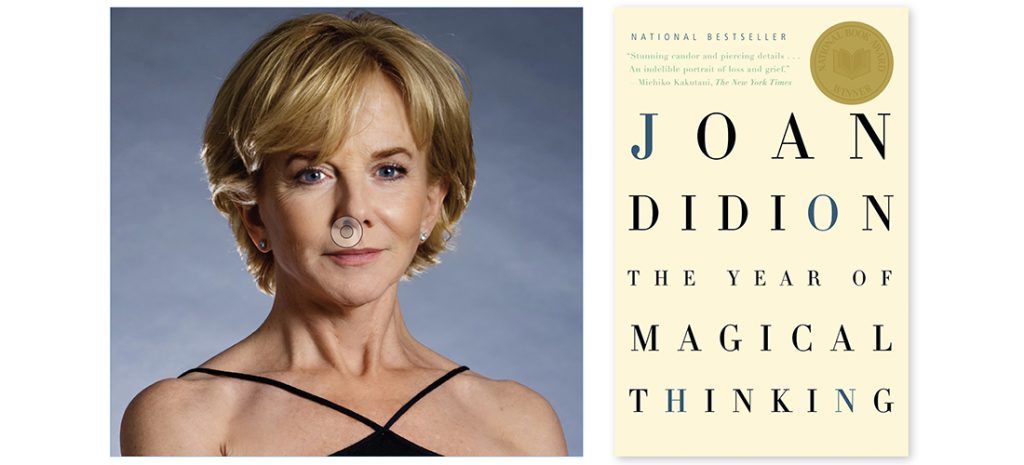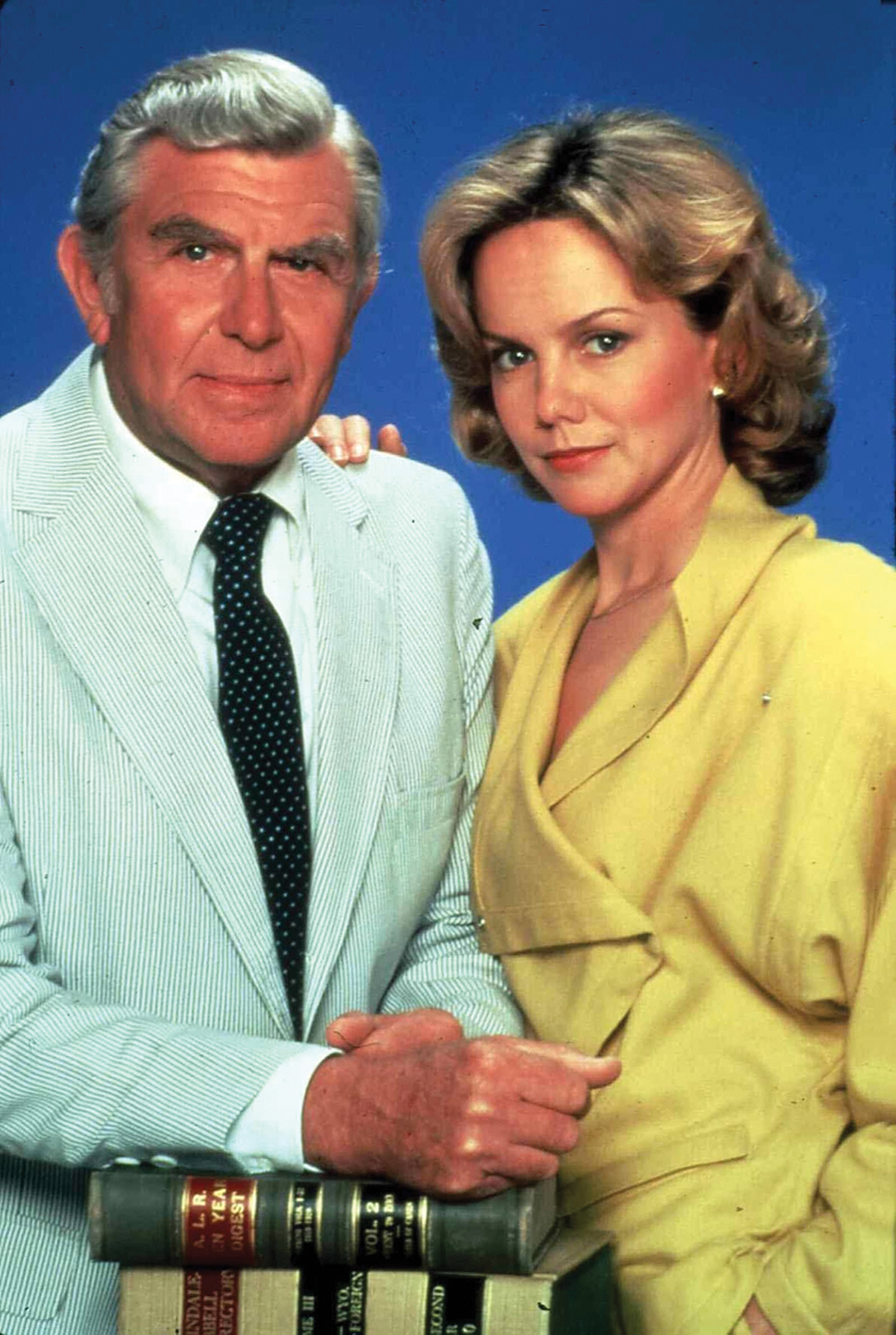Crossroads

Didion’s Masterpiece
Judson Theatre presents The Year of Magical Thinking
By Jim Moriarty


Above: Linda Purl and Henry Winkler starring in Happy Days
Right: Andy Griffith and Linda Purl in Matlock
When the late Joan Didion’s book The Year of Magical Thinking was published in 2005, it instantly became the indispensable handbook for grief and loss. The book, and the subsequent one-woman play that starred Vanessa Redgrave and debuted on Broadway in 2007, was published in October of ʼ05 and won that year’s National Book Award for Nonfiction. It recounts the year following the death of her husband, the writer John Gregory Dunne, from a sudden heart attack in 2003, and how that death and her ability, or inability, to process it transforms her reality. The book includes the illness of Didion and Dunne’s only child, their daughter, Quintana, and the play, a masterpiece of storytelling, expands to include Quintanaʼs death from pancreatitis in 2005.
The Year of Magical Thinking, starring Linda Purl, is the middle offering in Judson Theatre Company’s three-play summer festival, and will run from August 4-13 in the intimate McPherson Theater at the Bradshaw Performing Arts Center at Sandhills Community College.
Purl is likely best known to Sandhills audiences as Andy Griffith’s daughter, Charlene, in the long-running Matlock series, or as Steve Carell’s love interest in The Office, where she played the mother of Pam Beesly (Jenna Fischer). She also starred as Fonzieʼs (Henry Winkler) girlfriend from Happy Days.
Purl’s intimate relationship with The Year of Magical Thinking began 11 years ago when her close friend, Bonnie Franklin, was set to perform the one-woman monologue but had fallen ill. Franklin suggested Purl replace her and she agreed, but only if she could pass the role back to her friend when she recovered. “So, I started learning it, then my own mother was diagnosed with cancer, terminally,” says Purl. Her mother insisted she continue with the play, even running lines with her daughter quite literally from her deathbed. With her mother gravely ill, Purl decided she’d have to call the director and back out. “I opened my email in the morning and Bonnie had died,” says Purl. “So that was how I came to the role. Pretty intense.”
For Purl, her performances of the play have been a journey like no other. “Besides the fact that it’s a one-person play, you just feel like she (Didion) braved the rapids of how to negotiate some of the most difficult challenges one could ever face in life. It’s a template. It’s a map, and she gave it to us. I’m of an age where you lose people. Death is not a stranger.
“I did the play in Kansas and I was in the middle of the run and I was in the supermarket, and this woman came up to me and she said she’d seen the play the night before and she said, ‘My husband died three weeks ago. I thought I was going crazy and now I know I’m not.’ You want to feel that you’re doing something meaningful. If sharing her journey can be a comfort to someone else, then that’s a good day at work.”
While Purl has now done the play more times than she can recall, it’s never quite the same. “Every time I do it, it feels differently,” she says. “The play, its idea and its wisdom keep revealing itself to me. As an actress, it feeds you, too. It always feels like jumping off a cliff. But I never feel alone up there. I always feel like Joan is right there with me.”
That connection was revealed in her recent performance in London. In a review by Harry Bower for “All That Dazzles,” a theater website that popped up during the pandemic lockdown, Purl is described this way: “She knows every line of this script as if she and it are one. The inflection and delivery of each syllable is carefully measured and delivered with precision for maximum emotional impact. There is a vulnerability and sensitivity to her performance juxtaposed against a stoic bravery painted across her face in broad strokes. She is a force of nature, knowing the perfect moments to demonstrate restraint or let loose with her character’s truth. Her light-touch comic timing completes an extraordinary performance.”
The play’s passionate opening was crafted by Didion just days before its Broadway debut. Sitting and watching rehearsal, Didion looked at director David Hare and asked, “Wouldn’t this be better if it was less about me? And more about them?” And so it became about all of us. PS
Judson Theatre’s concluding play of its summer festival is The Last Five Years, running August 18-27. Tickets for either of the remaining plays are available at JudsonTheatre.com and ticketmesandhills.com.
